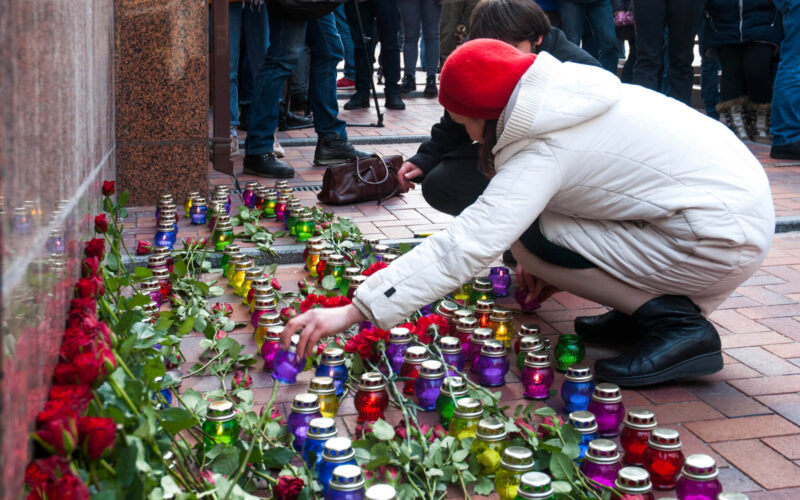On the first anniversary of the downing of Ukrainian International Airlines Flight PS752 by the Iranian Revolutionary Guards (IRGC), families of the victims demand justice. Yet little seems to be done to bring a satisfying conclusion to the investigation.
“Limited and selected information”
On January 8, 2020, Ukrainian International Airlines Boeing 737 crashed shortly after takeoff from Tehran International Airport, Iran, killing the 176 people on board. Among the 176 people, 82 were Iranians, while 63 were Canadians who were flying back home via Ukraine. The rest of the deceased were Ukrainian, Swedish, and British nationals.
After a few days of denial, the Iranian authorities eventually admitted that the aircraft was shot down. An operator of the Iranian Revolutionary Guards (IRGC), stationed in Bid Kaneh, allegedly mistook the commercial flight for a cruise missile and fired two missiles from a Tor-M1 surface-to-air system.
Hours before the crash, the Iranian military had launched over 12 missiles on U.S. bases in Iraq, in reprisal of the death of Qasem Soleimani, the commander of the Iranian special services, in a drone strike. The Iran military was expecting retaliation from the United States.
The latest interim report of Iran’s Civil Aviation Organization, published on July 13, 2020, claims that the main cause of the tragedy was a “human error” in setting up a defense radar. The incorrect angle of one of the missile systems showed an erroneous flight path to its operator, with Flight PS752 heading straight towards the nearby missile base of Malard, instead of away from Tehran.
However, other authorities involved in the investigation were unimpressed. Ukrainian Foreign Minister Dmytro Kuleba said it was too early to make such a conclusion that would rule out any mistake in the chain of command while solely blaming the accident on the operator of the weapon system.
Similarly, the Canadian authorities said the report failed to answer more important questions. Marc Garneau, Canada’s Minister of Transport, and François-Philippe Champagne, the Minister of Foreign affairs, released a joint statement insisting that Iran’s preliminary report “only provides limited and selected information regarding this tragic event.”
A heavy silence
Since then, little information has transpired. On January 6, 2020, Evgeny Dykhne, the president of Ukraine International Airlines, told AFP that the investigative process was not moving. “We have not received an answer to the main question: how it could have happened and who is responsible,” Dykhne said.
Even worse, on January 7, 2021, as they attempted to go back to the scene of the crash to hold a remembrance ceremony, the families of the victims were temporarily denied access by the police, as reported by Le Monde.
In late December 2020, Iran announced an intention to pay $150,000 to the families as compensation. Both Canada and Ukraine denounced the decision, whose amount was determined arbitrarily. “These are not negotiations,” said Dykhne, reminding that the amount of compensation must be decided “according to existing international precedents” and only after the final investigation determined all causes and responsibilities.
Champagne expressed a similar concern, as no “substantive discussions with Iran” on the subject of compensation had taken place yet. “The issue of compensation will not be set through unilateral statements by Iran but rather be subject to state-to-state negotiations,” Canada’s Minister of Foreign affairs said. Even though Canada’s Transportation Safety Board (TSB) was not granted full access to the evidence, a special commission was formed to investigate independently.

